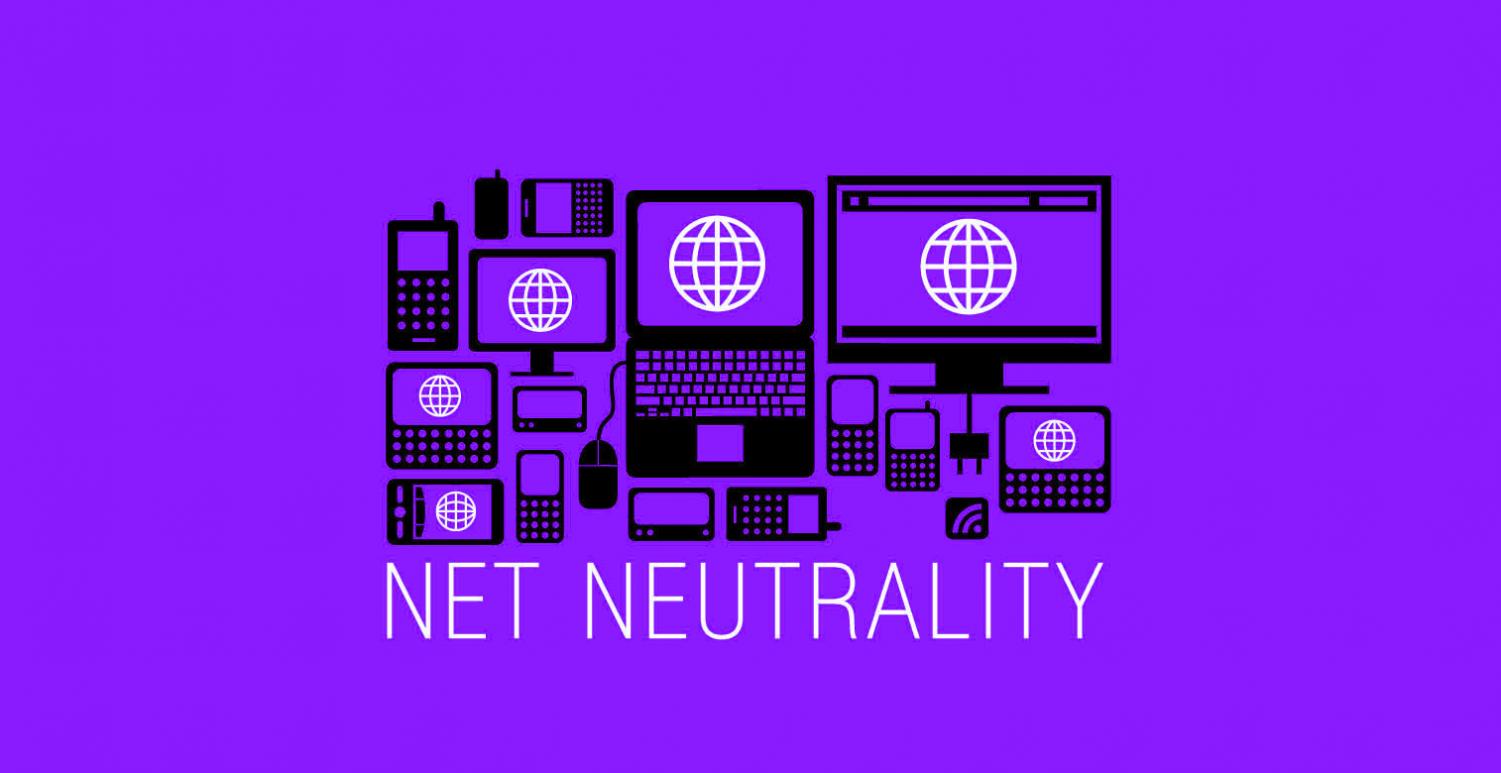Net Neutrality: what does it mean and why do we care?
January 19, 2018
The FCC (otherwise known as the Federal Communications Commission) decided in a 3-to-2 vote to repeal Net Neutrality across the United States on December 14, 2017. Net Neutrality, at its core, is a set of laws that regulates and prohibits broadband providers – companies like Verizon or AT&T – from blocking websites, charging for higher quality service, or prioritizing certain content. With the repeal of Net Neutrality, the federal government will no longer regulate high-speed internet delivery as if it was a utility.
The Net Neutrality bill was originally put in place by the Obama-era FCC back in February of 2015. However, many of the Trump-appointed officials, including FCC Chairman Ajit Pai, have opposed its implementation and prefer a more competitive ruleset that allows for a larger, innovative pressure. This creative and economic growth is something that may be facilitated by the repeal of Net Neutrality.
Ajit Pai himself believes that fewer regulations and restrictions will allow companies to invest in more innovative technology. He expands on his opinion by stating that by repealing Net Neutrality “we are helping consumers and promoting competition. Broadband providers will have more incentive to build networks, especially to under-served areas.”
Additionally, many broadband companies have stated that the repeal of Net Neutrality will not negatively impact the online experience of consumers and that they will not automatically start slowing down or stopping the flow of content.
However, many people have become increasingly upset and frightened about the deeper implications of the Net Neutrality repeal. The general public and officials alike fear that this will make it much harder for consumers to access their online content. They also fear that smaller organizations and startups will be forced to pay broadband companies or else they may get disregarded. Due to the legal acceptability of broadband companies to prioritize certain websites over other ones, people fear that websites, consumers, and subscribers alike may need to start paying more to get higher quality service.
Though broadband companies have stated that the internet experience will not be negatively impacted, they still have the option to come up with new plans that accommodate those willing to pay a bit more for higher quality services. Fees that go along with plans of that nature may be direct or come indirectly from larger companies.
Additionally, many of their statements are built on trust alone, leading the public to a state of distrust, as brought up by one of our very own RHS juniors, Hannah Malkin.
“You in your big corporate office building can promise me a lot of things, but in the end, I know your end goal is money, so the promises are empty and untrustworthy,” said Malkin.
As this controversy goes on, public opinion and action continue to play a major role. Many large companies such as Google, Netflix, Amazon, and more have already spoken out in opposition to the bill’s repeal. Along with several public interest groups and big tech firms, many companies are considering legal action. It’s a valuable aid to those opposed to the repeal.
“I think that it’s important and a useful asset to have big corporations on our side, especially when we are going up against big corporations,” states Malkin.
She also argues that people must speak out for the benefit of Net Neutrality.
“Free internet benefits everyone, regardless of race, gender, religion, economic status, etc. but that it harms most those among us whose voices may not be heard. Communication and information should be free, and we as young people have a powerful and important role in the saving of it,” Malkin claims.
As the legal battle surrounding Net Neutrality continues, people are encouraged to contact their congressmen and keep up with the decisions being made among government officials. After all, the only way to win this debate is to follow it, discuss it, and speak out about what should be done.
“We need to keep up the persistence, get bigger and better microphones, and make as much noise as we can.”
Sources / More Information Available At:
- https://www.usatoday.com/story/tech/talkingtech/2017/12/14/net-neutrality-rules-dead-my-internet-bills-go-up/952839001/
- https://www.nytimes.com/2017/12/14/technology/net-neutrality-repeal-vote.html
- http://fortune.com/2017/12/13/fcc-ajit-pai-net-neutrality-vote-2017/
- https://www.cnet.com/news/net-neutrality-allies-are-ready-to-fight-but-can-it-be-saved/
- Photo credit – http://egyptinnovate.com/en/idea-bank/net-neutrality-0
